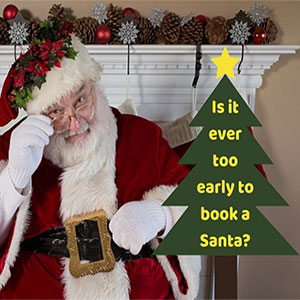KNOW YOUR ELVES!
Elves are essential helpers for every Santa. Without his elves, Santa just would not be able to get all those toys ready for Christmas Eve – nor could he cope with the reindeer! But just how much do you really know about Santa’s Elves?
We’ve taken a look and provided some fascinating details.
Elves are magical and always very, very busy. They have pointy ears, rosy cheeks and dress in red or green costumes.
They live in small houses close to Santa’s home and are decorated all year round with Christmas lights, ornaments and gingerbread.
How do the Elves help Santa?
Make toys – their most important job.
Elves work in Santa’s post office, sorting letters and making sure Santa reads and answers every single one
Elves look after the reindeer and the sleigh
On Christmas Eve, they fill the sleigh with sacks of presents and harness up the reindeer
Some elves join Santa on the sleigh, making sure the right present goes to the right child
Elves like baking, making lots of biscuits, cakes and sweets to keep them well fed during the journey around the world
Afterwards, the elves feed the reindeer and then everyone celebrates Christmas with lots of presents, fun and nice food
Elf History
Elves are well known in Norse and Germanic lore. There are lots of stories and legends about elves, creatures of light living in forests or underground in the hills and mountains.
In Denmark, Christmas elves responsible for bringing presents and toys are known as Nisse, and in Sweden they are Tomte.
They can also be very mischievous. In Iceland, the Yule Lads bring presents and play pranks on children. Elsewhere in Europe, Black Peter accompanies St Nicholas and puts coal in the shoes of naughty children.
Jan Steen, a seventeenth century Dutch painter, created a painting called The Feast of Saint Nicholas which is in the Rijksmuseum, Amsterdam. It shows a family at Christmas time. A little boy is crying because he has
been left coal in his shoe while a little girl is playing with her new doll.
In 1823, St Nicholas is described as a ‘jolly old Elf’ in the Night Before Christmas poem.



